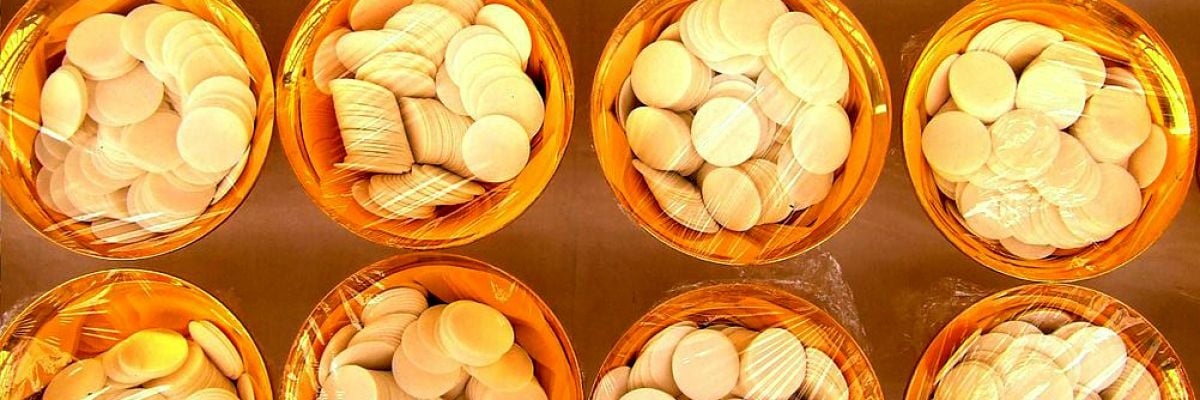
Question:
Answer:
I infer you mean Sunday Communion services, but I’ll address such services on other days as well. In the Directory for Sunday Celebrations in the Absence of a Priest, which the Congregation for Divine Worship issued in 1988, the Church provides:
It belongs to the diocesan bishop, after hearing the [diocesan] council of presbyters, to decide whether Sunday assemblies without the celebration of the Eucharist should be held on a regular basis in his diocese. It belongs also to the bishop, after considering the place and persons involved, to set out both general and particular norms for such celebrations. These assemblies are therefore to be conducted only in virtue of their convocation by the bishop and only under the pastoral ministry of the pastor (24).
So, according to the Church’s universal norm, the diocesan bishop, after receiving input from his diocesan council of priests, decides whether and when such Sunday celebrations should be allowed.
Similarly, for Communion services on days other than Sunday, the Church provides:
Likewise, especially if Holy Communion is distributed during such celebrations, the diocesan Bishop, to whose exclusive competence this matter pertains, must not easily grant permission for such celebrations to be held on weekdays, especially in places where it was possible or would be possible to have the celebration of Mass on the preceding or the following Sunday. Priests are therefore earnestly requested to celebrate Mass daily for the people in one of the churches entrusted to their care. (Congregation for Divine Worship and Discipline of the Sacraments, Redemptionis Sacramentum [On Certain Matters to Be Observed or to Be Avoided
Regarding the Most Holy Eucharist], 2004, no. 166).
So the Archbishop of Denver is acting in accord with the Church’s universal norms.
There can be other provisions made for the faithful who can’t participate in daily Mass to receive the Eucharist. Check with your diocesan chancery and your parish pastor for liturgical norms in that regard.



